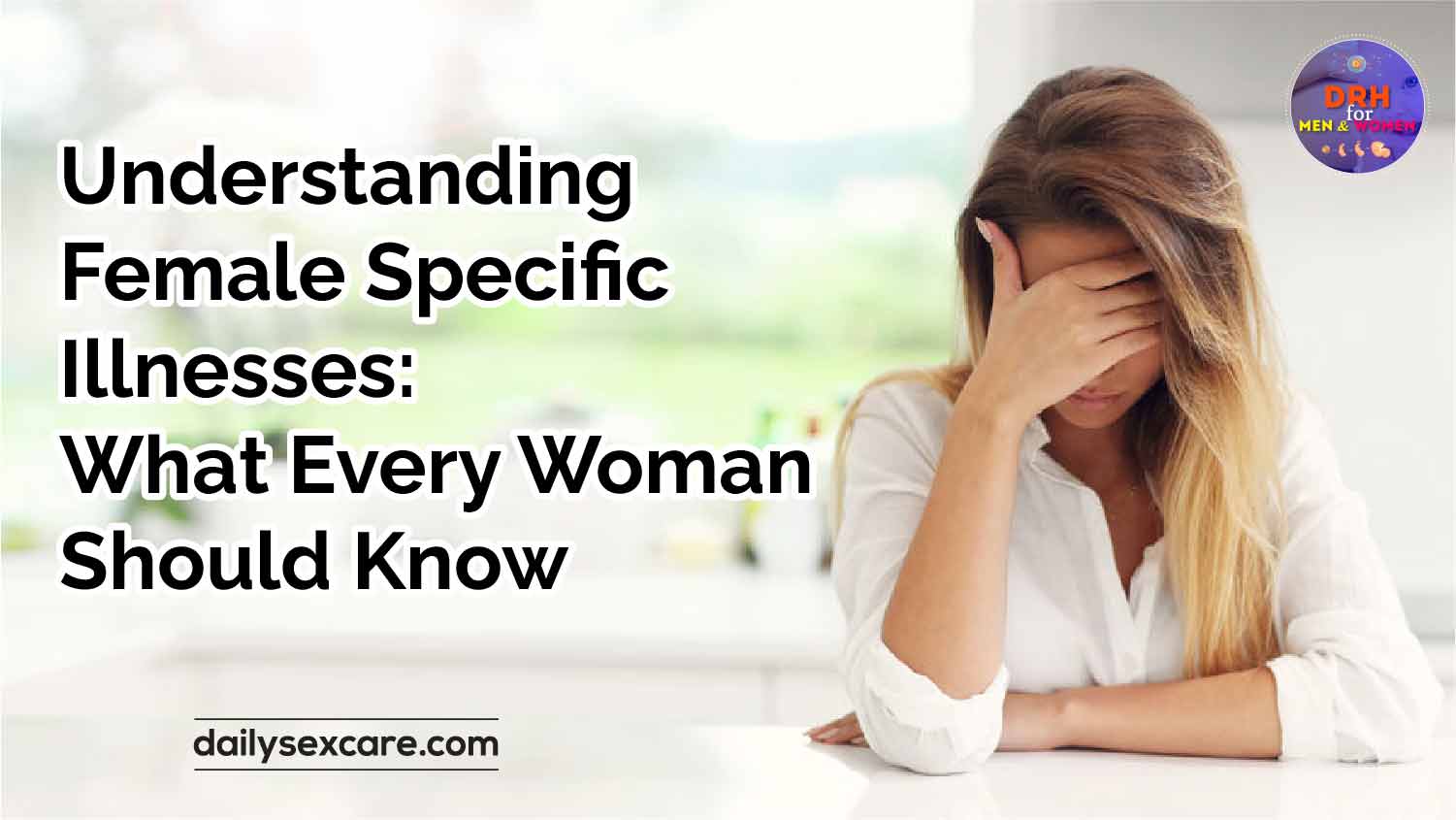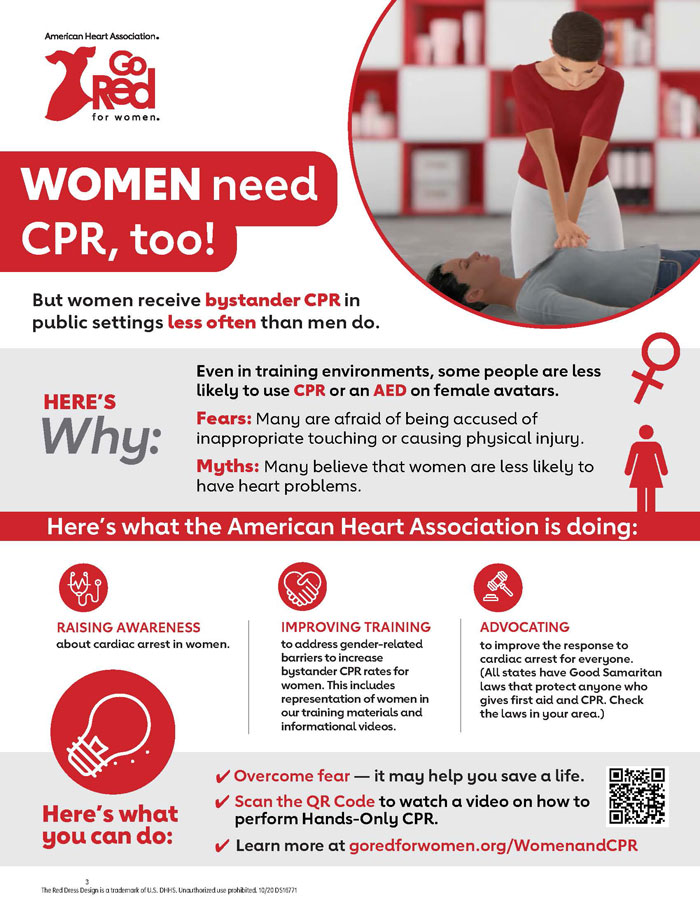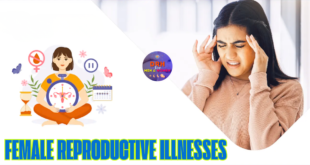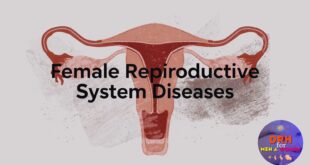
Understanding female-specific illnesses is crucial for women’s health. Awareness and early detection can improve outcomes and quality of life.
Women face unique health challenges that require specific attention. Conditions like endometriosis, polycystic ovary syndrome (PCOS), and breast cancer predominantly affect women. Recognizing symptoms early can lead to better management and treatment. Regular health check-ups and being informed about these conditions empower women to take proactive steps in maintaining their health.
Hormonal changes, reproductive health, and genetic factors play significant roles in these illnesses. This blog aims to provide essential information to help women understand and navigate their health journey more effectively. Stay informed and prioritize your well-being by learning about these female-specific conditions.

Credit: www.goredforwomen.org
Common Female-specific Illnesses
Understanding female-specific illnesses is crucial for women’s health. These illnesses affect women more frequently. Awareness and early detection can save lives.
Breast Cancer
Breast cancer is one of the most common female-specific illnesses. It starts in the cells of the breast. Early detection is key to successful treatment.
- Symptoms: Lump in the breast, nipple discharge, and skin changes.
- Risk Factors: Age, family history, and genetic mutations.
- Prevention: Regular screenings and healthy lifestyle choices.
| Stage | Description |
|---|---|
| Stage 0 | Non-invasive cancer |
| Stage I | Small tumor, localized |
| Stage II | Spread to nearby lymph nodes |
| Stage III | Larger tumor, more lymph nodes involved |
| Stage IV | Metastatic cancer, spread to other organs |
Ovarian Cancer
Ovarian cancer affects the ovaries and is often detected late. It is less common but more deadly.
- Symptoms: Abdominal pain, bloating, and frequent urination.
- Risk Factors: Age, family history, and reproductive history.
- Prevention: Regular check-ups and awareness of family history.
- Stage I: Cancer confined to the ovaries.
- Stage II: Cancer spread to pelvic organs.
- Stage III: Cancer spread to abdominal organs.
- Stage IV: Distant metastasis.
Early detection of ovarian cancer can improve survival rates. Being informed about symptoms and risk factors is crucial.
Hormonal Disorders
Hormonal disorders impact many women globally. These disorders can cause various health issues. Understanding them is crucial for maintaining well-being. Two common hormonal disorders are Polycystic Ovary Syndrome (PCOS) and Endometriosis.
Polycystic Ovary Syndrome (PCOS)
PCOS affects the ovaries and hormone levels. Women with PCOS may have irregular periods. They might also experience excessive hair growth, acne, and weight gain.

PCOS can lead to complications such as infertility and diabetes. Early diagnosis and treatment are essential. Here are some common symptoms:
- Irregular menstrual cycles
- Excessive hair growth
- Acne and oily skin
- Weight gain
Treatment options include lifestyle changes and medications. A balanced diet and regular exercise help manage symptoms. Consult a healthcare provider for personalized advice.
Endometriosis
Endometriosis occurs when tissue similar to the uterine lining grows outside the uterus. This can cause severe pain and other symptoms. Women with endometriosis often experience painful periods and pelvic pain.
Endometriosis can also lead to fertility problems. The exact cause is unknown, but early treatment can help. Here are some signs of endometriosis:
- Severe menstrual cramps
- Chronic pelvic pain
- Pain during intercourse
- Heavy menstrual bleeding
Treatment for endometriosis varies. Options include pain relief medications and hormone therapy. In some cases, surgery may be necessary. Speak with a healthcare provider to explore suitable treatments.
Reproductive Health
Reproductive health is crucial for every woman. It encompasses various aspects of the female reproductive system. Understanding these aspects can help maintain well-being and address issues promptly. Let’s delve into some common female-specific illnesses related to reproductive health.
Menstrual Disorders
Menstrual disorders are common among women. They include problems like irregular periods, heavy bleeding, and painful cramps. These issues can affect daily life and overall health.
Irregular Periods: Irregular periods occur when the menstrual cycle is not consistent. This can be due to hormonal imbalances, stress, or underlying health conditions.
Heavy Bleeding: Heavy bleeding, or menorrhagia, can cause fatigue and anemia. It is essential to seek medical advice if experiencing this symptom.
Painful Cramps: Painful cramps, also known as dysmenorrhea, can be severe. They often require pain management strategies and sometimes medical intervention.

Infertility Issues
Infertility affects many women worldwide. It is defined as the inability to conceive after one year of unprotected intercourse.
| Cause | Description |
|---|---|
| Ovulation Disorders | Problems with ovulation can prevent eggs from being released. |
| Fallopian Tube Damage | Blocked or damaged tubes can hinder the meeting of sperm and egg. |
| Endometriosis | Tissue similar to the uterine lining grows outside the uterus. |
Infertility can be distressing, but there are treatment options available. These include medications, surgical procedures, and assisted reproductive technologies like IVF.
Understanding these conditions and seeking timely help can improve outcomes. Women should not hesitate to consult healthcare providers for reproductive health concerns.

Credit: www.nimh.nih.gov
Autoimmune Diseases
Autoimmune diseases affect many women worldwide. These conditions occur when the immune system attacks the body’s tissues. Understanding these diseases helps manage symptoms and improve quality of life. Here, we’ll explore two common autoimmune diseases: Lupus and Rheumatoid Arthritis.
Lupus
Lupus is a chronic autoimmune disease. It can damage any part of the body. The immune system attacks healthy tissues, causing inflammation. This can lead to pain, swelling, and tissue damage.
Common symptoms of Lupus include:
- Fatigue
- Joint pain
- Skin rashes
- Fever
Women are more likely to develop Lupus than men. Early diagnosis and treatment can help manage symptoms. Regular check-ups are important for maintaining health.
Rheumatoid Arthritis
Rheumatoid Arthritis (RA) is another autoimmune disease. It primarily affects the joints. The immune system attacks the lining of the joints, leading to inflammation.
Key symptoms of RA include:
- Joint pain
- Swelling
- Stiffness
- Loss of joint function
RA affects women more than men. The exact cause is unknown, but genetics and environment play a role. Early treatment can help prevent joint damage.
Here is a comparison of Lupus and Rheumatoid Arthritis:
| Condition | Common Symptoms | Affected Areas |
|---|---|---|
| Lupus | Fatigue, Joint pain, Skin rashes, Fever | Whole body |
| Rheumatoid Arthritis | Joint pain, Swelling, Stiffness, Loss of joint function | Joints |
Understanding these autoimmune diseases is crucial. It helps in getting the right treatment and support. Awareness can lead to early diagnosis and better management.
Mental Health Concerns
Understanding mental health is crucial for every woman. Mental health issues can affect anyone, but some concerns are more common in women. Recognizing the symptoms and seeking help early can make a huge difference. This section will discuss two major mental health concerns: depression and anxiety.
Depression
Depression is a serious mental health condition. It goes beyond feeling sad. Women often experience depression differently than men. They may feel hopeless, lose interest in activities, or have trouble sleeping. Symptoms can also include changes in appetite and energy levels.
- Persistent sadness
- Loss of interest in activities
- Changes in sleep patterns
- Feelings of worthlessness
Depression affects every aspect of life. It can impact relationships, work, and daily activities. Women are more likely to experience depression due to hormonal changes, life events, and social pressures. It is important to seek help from a healthcare provider. Treatment options include therapy, medication, and lifestyle changes.
Anxiety
Anxiety is another common mental health concern in women. It involves excessive worry and fear. Women with anxiety may feel tense, restless, and have difficulty concentrating. Physical symptoms can include a racing heart, sweating, and headaches.
- Excessive worry
- Restlessness
- Difficulty concentrating
- Physical symptoms like sweating
Anxiety can interfere with daily life. It can make it hard to focus at work or enjoy time with family. Women may experience anxiety due to hormonal fluctuations, stress, or trauma. Effective treatment options include therapy, medication, and relaxation techniques.
| Symptom | Depression | Anxiety |
|---|---|---|
| Mood | Persistent sadness | Excessive worry |
| Sleep | Changes in sleep patterns | Difficulty sleeping |
| Physical Symptoms | Changes in appetite | Racing heart |
Understanding these mental health concerns is important. Women should be aware of the symptoms and seek help early. Proper treatment can improve quality of life and overall well-being.
Cardiovascular Health
Understanding cardiovascular health is vital for women. Cardiovascular diseases, including heart disease and stroke, are leading causes of death among women. Awareness and early detection can save lives.

Heart Disease
Heart disease is a significant health issue for women. It involves conditions affecting the heart. Common types include coronary artery disease, heart attacks, and heart failure.
Risk factors include:
- High blood pressure
- High cholesterol
- Smoking
- Diabetes
- Obesity
- Family history
Symptoms of heart disease in women can be different. They may experience:
- Chest pain or discomfort
- Shortness of breath
- Nausea
- Fatigue
- Pain in neck, jaw, or back
Preventive measures include:
- Maintaining a healthy diet
- Regular physical activity
- Quitting smoking
- Managing stress
- Regular health check-ups
Stroke
A stroke occurs when blood flow to the brain is interrupted. It can cause brain damage and disability.
Stroke risk factors include:
- High blood pressure
- High cholesterol
- Diabetes
- Smoking
- Family history
Signs of a stroke include:
- Sudden numbness or weakness in face, arm, or leg
- Confusion or trouble speaking
- Vision problems
- Difficulty walking
- Severe headache
Stroke prevention tips:
- Control blood pressure
- Maintain healthy cholesterol levels
- Exercise regularly
- Eat a balanced diet
- Avoid smoking
Bone Health
Bone health is crucial for women of all ages. Women face unique challenges in maintaining strong bones. Good bone health helps prevent serious illnesses. Here, we discuss two key conditions: Osteoporosis and Osteoarthritis.
Osteoporosis
Osteoporosis weakens bones. It makes them fragile and more likely to break. Women are at higher risk, especially after menopause.
- Bone density decreases with age.
- Low estrogen levels affect bone strength.
- Calcium and Vitamin D are vital for bone health.
Regular exercise helps strengthen bones. Weight-bearing activities like walking or jogging are beneficial. Healthy eating also plays a key role.
| Risk Factor | Impact |
|---|---|
| Age | Higher risk as women age |
| Hormones | Low estrogen increases risk |
| Diet | Lack of calcium weakens bones |
Osteoarthritis
Osteoarthritis affects the joints. It causes pain and stiffness. This condition is more common in women.
- Cartilage breaks down.
- Joints become inflamed.
- Movement becomes painful.
Maintaining a healthy weight reduces strain on joints. Physical therapy can improve joint function. Anti-inflammatory foods like fish and nuts help too.
Understanding these conditions is vital. Women can take steps to protect their bone health. Regular check-ups and a healthy lifestyle are key.
Infectious Diseases
Women face unique challenges with infectious diseases. Knowing about these can help with early detection and treatment. This section covers two common infectious diseases that affect women: Human Papillomavirus (HPV) and Urinary Tract Infections (UTIs).

Human Papillomavirus (HPV)
HPV is a common virus affecting women. It spreads through skin-to-skin contact, often during sexual activity. Most HPV infections cause no symptoms and go away on their own. But some types can lead to cervical cancer.
Getting regular Pap smears can help detect early changes in cervical cells. There is also a vaccine available that protects against the most dangerous types of HPV.
Urinary Tract Infections (UTIs)
UTIs are very common in women. They occur when bacteria enter the urinary tract. Symptoms include a strong urge to urinate, burning sensation, and cloudy urine.
Here are some tips to prevent UTIs:
- Drink plenty of water.
- Wipe from front to back.
- Urinate after sexual activity.
- Avoid irritating feminine products.
Treatment usually involves antibiotics. It’s important to complete the full course of medication to ensure the infection is fully cleared.
Skin Conditions
Women often face unique skin conditions. These issues can affect confidence and well-being. Understanding these conditions helps in effective management. Two common skin conditions are acne and melasma.
Acne
Acne is a frequent skin issue among women. Hormonal changes often cause it. These changes occur during puberty, pregnancy, and menstrual cycles. Acne appears as pimples, blackheads, and cysts. It affects the face, chest, and back.
Here are some tips to manage acne:
- Wash your face twice daily.
- Use non-comedogenic products.
- Avoid touching your face.
- Eat a balanced diet.
Consult a dermatologist for severe cases. They may prescribe medications. Treatments can include topical creams and oral antibiotics.
Melasma
Melasma causes dark patches on the skin. It often appears on the face. Hormonal changes and sun exposure trigger it. Melasma is common during pregnancy and with birth control use.
Here are some tips to manage melasma:
- Use sunscreen daily.
- Wear hats and sunglasses outdoors.
- Consider using skin-lightening creams.
Dermatologists may offer treatments like chemical peels and laser therapy. Regular follow-ups help manage this condition better.
Digestive Disorders
Digestive disorders affect many women worldwide. These conditions cause discomfort and disrupt daily life. Understanding these illnesses can help in managing symptoms effectively. This section focuses on two common digestive disorders: Irritable Bowel Syndrome (IBS) and Celiac Disease.

Irritable Bowel Syndrome (IBS)
IBS is a common disorder that affects the large intestine. Symptoms include cramping, abdominal pain, bloating, gas, and diarrhea or constipation. These symptoms can be severe and affect the quality of life.
- Cramping: Sudden, severe abdominal pain.
- Bloating: Feeling full and swollen in the abdomen.
- Gas: Excessive flatulence.
- Diarrhea or Constipation: Frequent, loose stools or difficulty in passing stool.
To manage IBS, consider dietary changes, stress management, and medication. Avoid foods that trigger symptoms. Practice relaxation techniques like yoga and meditation.
Celiac Disease
Celiac disease is an autoimmune disorder where eating gluten damages the small intestine. Gluten is a protein found in wheat, barley, and rye. This disease can lead to malabsorption of nutrients.
Symptoms of celiac disease include:
- Diarrhea
- Fatigue
- Weight loss
- Bloating and gas
- Anemia
The only treatment for celiac disease is a strict gluten-free diet. Avoid all foods containing wheat, barley, and rye. Check labels carefully and consult with a dietitian.
| Symptoms | IBS | Celiac Disease |
|---|---|---|
| Abdominal Pain | Yes | Yes |
| Bloating | Yes | Yes |
| Diarrhea | Yes | Yes |
| Constipation | Yes | No |
| Fatigue | No | Yes |
Understanding these digestive disorders can lead to better management and improved well-being. Stay informed and consult with healthcare professionals for personalized advice.
Pregnancy-related Issues
Pregnancy brings joy but can also cause health problems. It’s vital to know about these issues. Awareness helps in early detection and treatment.
Gestational Diabetes
Gestational diabetes occurs during pregnancy. It affects the way the body uses sugar. High blood sugar can harm both mother and baby.
| Symptoms | Risks | Treatments |
|---|---|---|
|
|
|
Pre-eclampsia
Pre-eclampsia is a serious pregnancy condition. It involves high blood pressure and damage to organs.
- Symptoms: Severe headaches, vision changes, and swelling.
- Risks: Age over 35, obesity, and multiple pregnancies.
- Treatments: Bed rest, medication, and early delivery if needed.
Menopause And Post-menopause
Menopause marks the end of a woman’s reproductive years. This natural process usually begins in the late 40s or early 50s. Post-menopause follows menopause and lasts for the rest of a woman’s life. Understanding these stages is crucial for managing symptoms and maintaining health.
Symptoms Management
Managing symptoms of menopause and post-menopause is vital for well-being. Common symptoms include hot flashes, night sweats, mood swings, and weight gain. A balanced diet and regular exercise can help. Here are some tips:
- Eat a diet rich in fruits and vegetables.
- Stay hydrated by drinking plenty of water.
- Exercise regularly to maintain a healthy weight.
- Practice relaxation techniques like yoga and meditation.
Hormone Replacement Therapy
Hormone Replacement Therapy (HRT) can alleviate menopause symptoms. HRT replaces hormones that the body no longer makes. There are different types of HRT:
| Type of HRT | Description |
|---|---|
| Estrogen-only HRT | Recommended for women who have had a hysterectomy. |
| Combined HRT | Contains both estrogen and progesterone. |
Consult a healthcare provider to find the best HRT option. Always discuss potential risks and benefits.
Genetic Conditions
Genetic conditions can significantly impact a woman’s health. These conditions are passed down from parents to children through genes. Understanding these conditions helps in early diagnosis and treatment. Two important genetic conditions are BRCA Mutations and Turner Syndrome.
BRCA Mutations
BRCA1 and BRCA2 are genes that produce proteins to repair DNA. Mutations in these genes can lead to cancer. Women with BRCA mutations have a higher risk of breast and ovarian cancer. Regular screenings and preventive measures are crucial.
| BRCA1 | BRCA2 |
|---|---|
| Higher breast cancer risk | High breast cancer risk |
| Increased ovarian cancer risk | Increased ovarian cancer risk |
Testing for BRCA mutations can guide treatment decisions. Women with these mutations may consider preventive surgeries. Genetic counseling helps families understand the risks.
Turner Syndrome
Turner Syndrome occurs in females when one of the X chromosomes is missing. This condition affects physical and reproductive development. Girls with Turner Syndrome are usually shorter and may have heart issues.
- Short stature
- Heart defects
- Infertility
Early diagnosis allows for better management of symptoms. Growth hormone therapy can help increase height. Regular medical check-ups are essential for monitoring health.
Understanding these genetic conditions empowers women to take control of their health. Early detection and treatment can improve quality of life.
Lifestyle Factors
Understanding female-specific illnesses involves examining various lifestyle factors. Among these, diet, nutrition, exercise, and fitness play crucial roles. These factors can significantly impact women’s health and well-being.
Diet And Nutrition
What women eat affects their overall health. A balanced diet can prevent many diseases.
- Fruits and Vegetables: Essential for vitamins, minerals, and antioxidants.
- Whole Grains: Provide fiber and help in digestion.
- Lean Proteins: Important for muscle and tissue repair.
- Healthy Fats: Found in nuts, seeds, and fish for brain health.
Avoid processed foods and sugary drinks. These can lead to weight gain and chronic illnesses.
Staying hydrated is also vital. Drink at least 8 glasses of water daily.
Exercise And Fitness
Regular exercise has multiple benefits. It helps in maintaining a healthy weight.
Exercise also reduces the risk of chronic diseases. These include heart disease and diabetes.
Here are some recommended exercises:
- Cardio Exercises: Running, cycling, and swimming improve heart health.
- Strength Training: Weight lifting strengthens muscles and bones.
- Flexibility Exercises: Yoga and stretching improve mobility and reduce stress.
Aim for at least 30 minutes of physical activity daily. Consistency is key for long-term benefits.
Incorporating these lifestyle factors can lead to a healthier life. Make informed choices about diet and exercise for better health.
Preventive Care
Understanding female-specific illnesses is crucial for every woman. Preventive care plays a vital role in maintaining women’s health. By taking proactive steps, women can avoid many serious illnesses. Below are key elements of preventive care that every woman should know.
Regular Screenings
Regular screenings help detect health issues early. Early detection increases the chances of successful treatment. Here are some important screenings:
- Mammograms: Detect breast cancer early. Women over 40 should get them yearly.
- Pap Smears: Check for cervical cancer. Women should have one every three years.
- Bone Density Tests: Detect osteoporosis. Women over 65 should get tested.
- Blood Pressure Checks: Monitor for hypertension. Regular checks help maintain heart health.
Vaccinations
Vaccinations protect against various diseases. They are essential for maintaining good health. Here are some important vaccinations for women:
- HPV Vaccine: Prevents cervical cancer. Recommended for women up to age 26.
- Flu Shot: Protects against influenza. Should be taken annually.
- Hepatitis B Vaccine: Prevents liver infection. Important for women of all ages.
- Tetanus, Diphtheria, and Pertussis (Tdap) Vaccine: Recommended during each pregnancy.
Preventive care involves regular screenings and vaccinations. These steps help maintain health and prevent diseases. Every woman should make them a part of her health routine.
Frequently Asked Questions
What Are The Diseases That Only Affect Females?
Diseases that only affect females include ovarian cancer, cervical cancer, endometriosis, and polycystic ovary syndrome (PCOS). These conditions are specific to the female reproductive system.
What Are The Most Important Aspects Of Women’s Health?
The most important aspects of women’s health include regular screenings, balanced nutrition, mental well-being, exercise, and reproductive health care. Prioritize preventive care.
What Do We Not Know About Women’s Health?
Many aspects of women’s health remain unknown. Menopause effects, autoimmune disorders, and heart disease symptoms need more research. Hormonal influences on mental health are also underexplored.
What Are Common Female-specific Illnesses?
Common female-specific illnesses include breast cancer, ovarian cancer, endometriosis, and polycystic ovary syndrome (PCOS).
Conclusion
Understanding female-specific illnesses empowers women to take control of their health. Stay informed and prioritize regular check-ups. Early detection and proper care can make a significant difference. Share this knowledge with loved ones and encourage healthy habits. Your health is your greatest asset; protect it diligently.
 Reproductive Health Sexual and Reproductive Health
Reproductive Health Sexual and Reproductive Health






